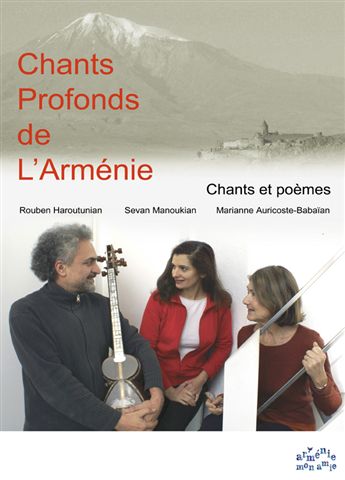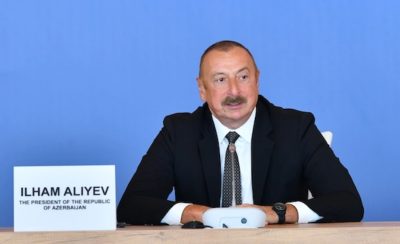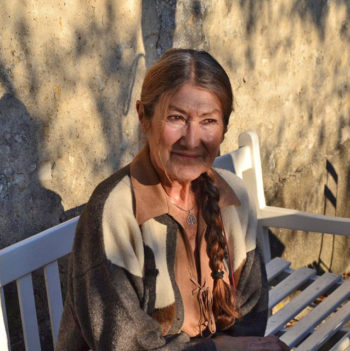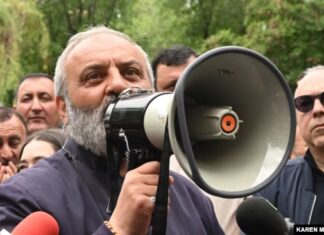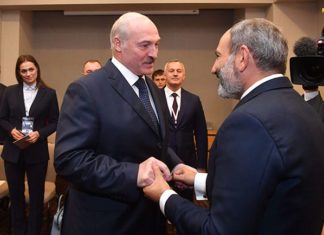by Artsvi Bakhchinyan
Special to the Mirror-Spectator
YEREVAN/PARIS — Marianne Auricoste started as an actress, but then devoted herself to poetry and reciting. She founded the association Le Chant des Mots [The Song of Words] (supported by the French Ministry of Culture, the National Book Center and the Regional Directorate of Contemporary Art), which organizes creative writing workshops for adults and children. On stage, she performs Euripides, Racine, Chekhov, Claudel, Strindberg, Milosz and Brecht, but also gives poetry shows. Auricoste is also a producer for RFI and France-Culture public radio stations. Her published works include Letter from Beauce (Chambelland, 2001, poems), Conversation in the Dark (L’Harmattan, 2001), The Promise (L’Harmattan, 2003) Guillevic, the Wedding of Gull (L’Harmattan, 2007) and The Clay of Words (2015, Casterman, a poem). Auricoste has contributed to the magazines Vagabondages, Europe, Sud, Dire, Trousse Livre.
Dear Marianne, the origin of our first contact was your Armenian grandmother, as well as her sisters. During their long life, these incredible Babayan sisters, three art professionals – a singer, a painter and a pianist – served the Armenian and French cultures. You must remember them very well, do not you?
I grew up surrounded by my Armenian family. My grandmother, Arminia-Armenuhi, a painter, married to my grandfather, a Catalan doctor Charles Carbonell, lived in Meudon (a suburb near Paris), a few blocks from our house. My sister, my mom (Guidette Carbonell) and I were there almost every day. Every Sunday, the family met at my grandmother’s place, including my grand aunt Marguerite Babaïan (singer), my aunt, my uncle (the brother of Guidette) and my first cousins. It was then the tea ceremony, the chatter in French, in Armenian, the news of each other. My great-aunt Marguerite, very active in the Armenian community, told us about her students, her meetings and chronicled the latest Armenian events. She was our ambassador, always active and dynamic, very patriotic, very passionate. I loved her stories and her enthusiasm. She dreamed of teaching me Armenian. I began to decipher with her the alphabet and I already knew a few words. But above all, she passed on to me her love for her country and I felt confusedly that it was mine too. I have always felt from my childhood that I belonged to that culture and people of which I was proud. My grandmother told me about her childhood at Tiflis, and her stories made me dream. My great-grandfather, Avetik Babaian was a doctor, a great researcher. He had founded a research center in Tiflis and the whole family lived there in a big house. My great grandmother, Sofia Babayan, a great scholar, had opened a French school and took care of the education of her three daughters, Arminia, Marguerite and Chouchik. One was destined for painting, the second for singing and the third for music. And very young, the three sisters came to Paris to perfect their art. A very daring trip for the time. The three sisters have not left Paris.
